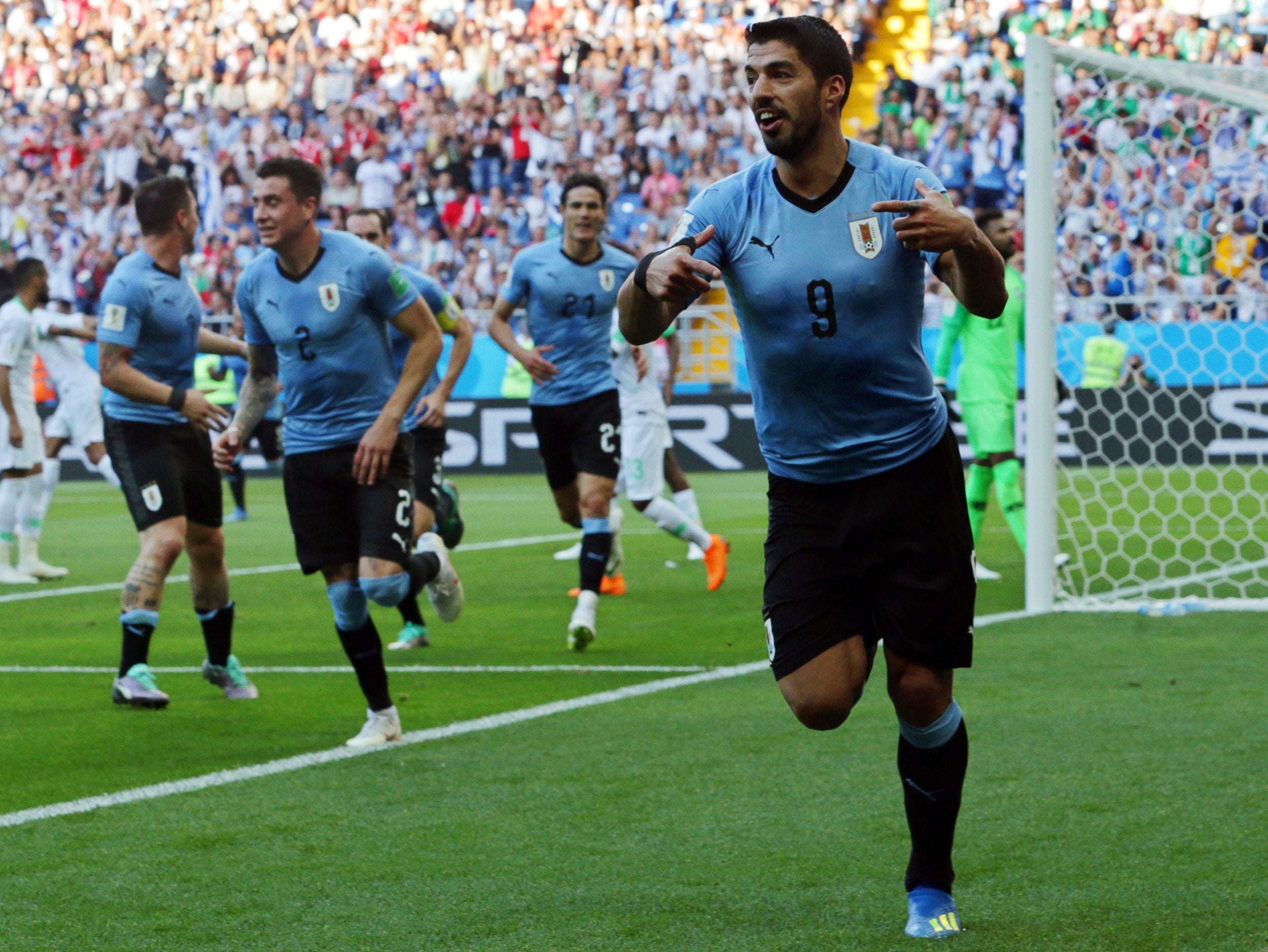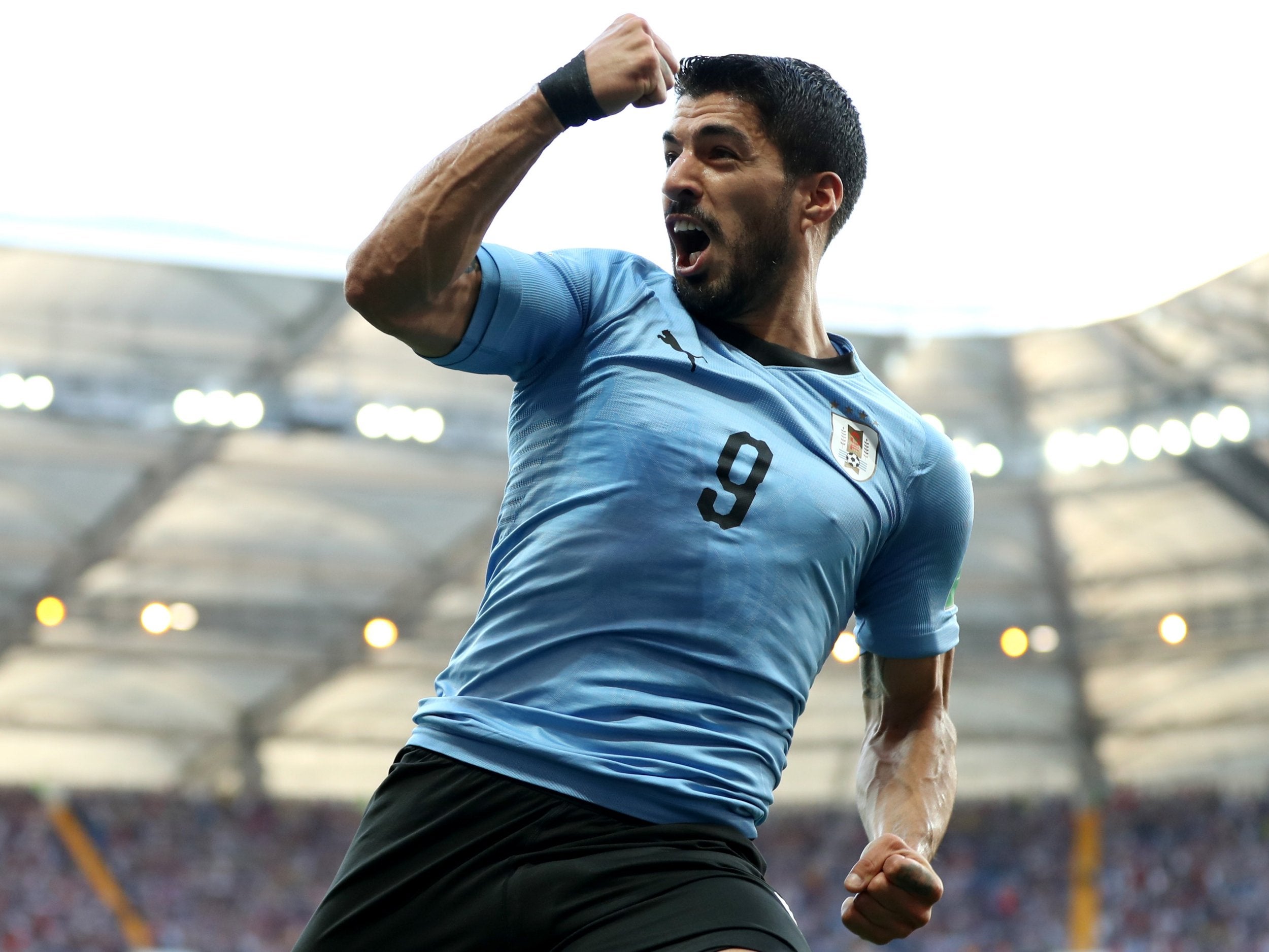Your support helps us to tell the story
From reproductive rights to climate change to Big Tech, The Independent is on the ground when the story is developing. Whether it's investigating the financials of Elon Musk's pro-Trump PAC or producing our latest documentary, 'The A Word', which shines a light on the American women fighting for reproductive rights, we know how important it is to parse out the facts from the messaging.
At such a critical moment in US history, we need reporters on the ground. Your donation allows us to keep sending journalists to speak to both sides of the story.
The Independent is trusted by Americans across the entire political spectrum. And unlike many other quality news outlets, we choose not to lock Americans out of our reporting and analysis with paywalls. We believe quality journalism should be available to everyone, paid for by those who can afford it.
Your support makes all the difference.Oscar Tabarez has seen it all, and achieved even more throughout a glittering 38-year coaching career, but steering Uruguay, a nation of less than three-and-a-half million people, to three successive knockout rounds at the World Cup, this time with a game to spare, has to rank up there with the very best of them.
It was not all that pretty in stifling conditions in Rostov-On-Don. Luis Suarez, making his 100th appearance for Uruguay, marked the landmark with a simple goal to open the scoring, with more than a helping hand from Saudi Arabia goalkeeper Mohammed Alowais.
Up against far inferior opponents, Uruguay saw out the 1-0 win in second gear and, as Tabarez always does, got the job done. Egypt’s defeat to Russia means they and the Saudis cannot catch Uruguay now, so it is winner takes top spot in Group A when Russia and Uruguay face off in Samara next Monday.
In the four World Cups he has overseen, Tabarez has now steered Uruguay to at least the last 16, the first being at Italia ’90, during his first stint as coach. To put that achievement into perspective, La Celeste did not make it past the group stage in two of the four World Cups in between his tenures, and did not even qualify for the other two.
Tabarez has revolutionised Uruguayan football, from youth development through to the senior side. El Maestro, as he is affectionately known having previously been a teacher, suffers from the rare debilitating Guillain-Barre syndrome, meaning he cannot walk unaided, but nothing can keep this inspirational figure down.
What Saudi Arabia would do for anything like Uruguay’s continuity. Juan Antonio Pizzi is the Saudi’s fourth coach in under a year, and he has brought very little improvement.
They did manage to shore things up after the disastrous 5-0 defeat in the curtain-raiser in Moscow last week, and they had chances in Rostov, with Hatan Bahbri missing the most guilt-edged in the first half, but a real lack of quality was again the Saudi’s undoing.

Frontline strikers Edinson Cavani and Luis Suarez will be 35 come the next World Cup, while captain Diego Godin will be the ripe old age of 36. There are youngsters coming through, thanks to the foundations laid by Tabarez, but of Suarez, Cavani and Godin's ilk? Not on your life. This has to be Tabarez's time, and not just because of his declining health.
Entertainment has been conspicuous by its absence in both Uruguay's games so far. While Saudi Arabia never really looked like getting back into it in Rostov, Suarez and Cavani spent the rest of the match gesticulating, frustrated at the lack of service, or another errant pass.
Much was expected of Rodrigo Bentancur this tournament, but the 20-year-old Juventus youngster is yet to find his feet in Russia, while Matias Vecino, on the back of a decent season with Inter Milan, has also struggled to string more than a few passes together.

Nonetheless, to achieve consistency, even if the opposition are so inferior, on the grandest of stages, is what separates the good from the great. Tabarez’s next task to to try inspire his side to victory over what will likely be Spain or Portugal in the first knockout round.
And against all the odds, El Maestro might just have one final masterplan ready for action.

Join our commenting forum
Join thought-provoking conversations, follow other Independent readers and see their replies
Comments